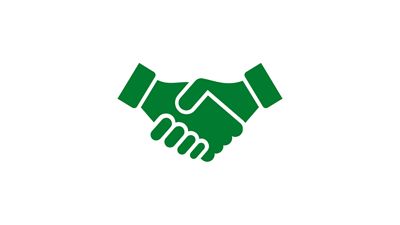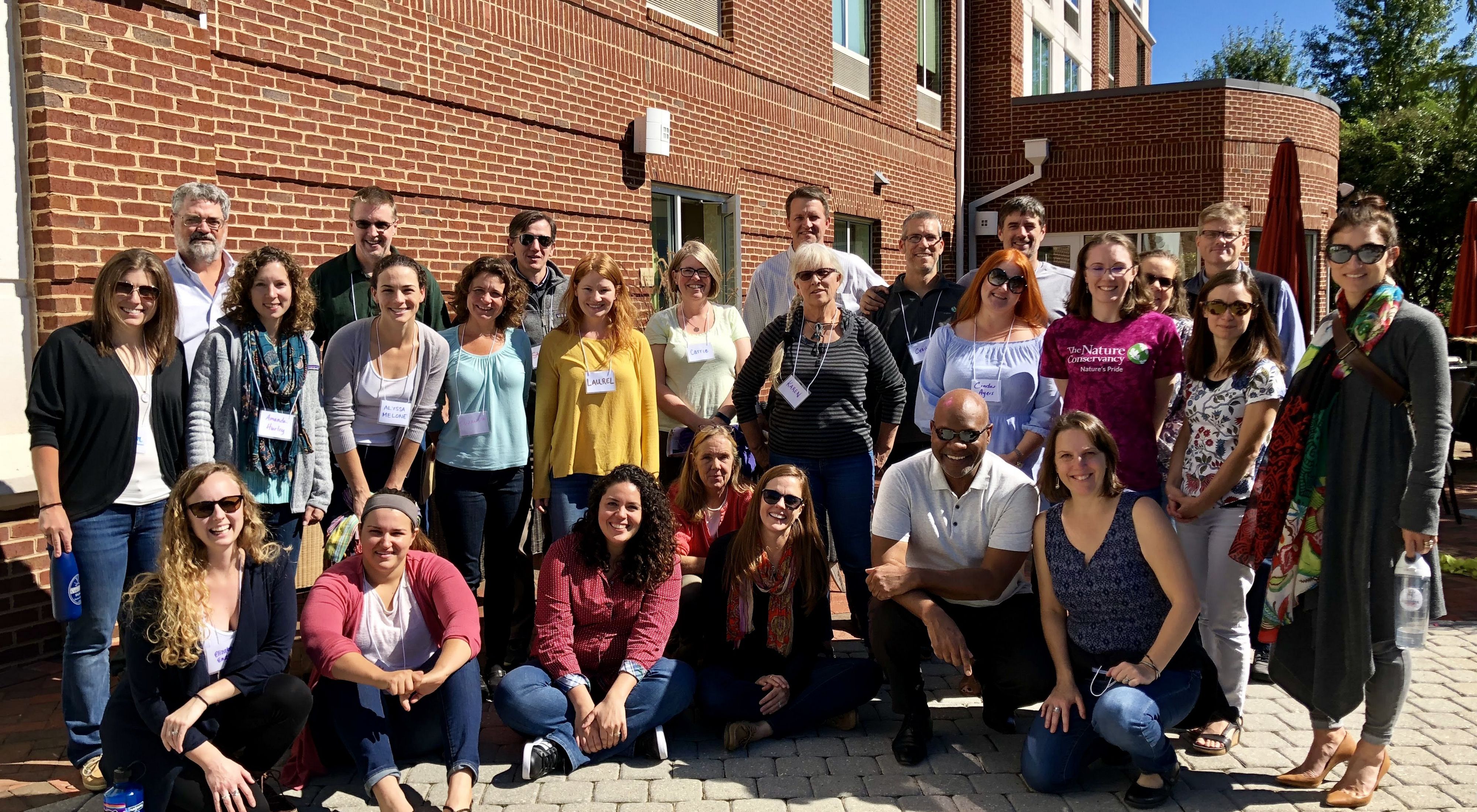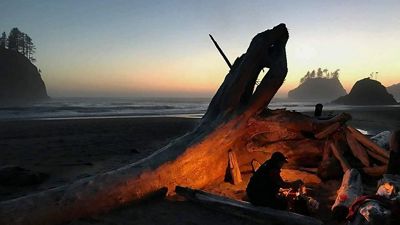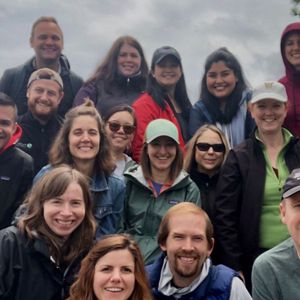How Our Application Process Works
We’re committed to a fair and equitable recruitment process and encourage qualified applicants of all backgrounds, experiences, abilities, and identities to apply. Here’s what to expect with our hiring process!
-

Submit an Application
Match your experience with the What You'll Bring section of each job posting - these are the minimum qualifications we use to find qualified candidates.
-

Phone Interview
If your experience aligns with the qualifications, you may receive a phone call or questionnaire. This is an opportunity for the hiring team to get to know you!
-

Interview
If you are selected, the hiring team will reach out to schedule an interview. You’ll learn more about the team and have the opportunity to ask questions.
-

Decision
The hiring team will communicate with you about the final steps in the process. We wish you the best of luck!
How to use our job application site
Are you Ready to Start Your Application Now?
Join Us!
Have Questions about TNC?
Find answers to common questions about The Nature Conservancy.
Frequently Asked Questions
-
TNC employs a multi-faceted and talented group of dedicated, hard-working employees who collaborate to achieve our conservation goals. If you’re interested in joining our team, please visit careers.nature.org for current job opportunities and to submit your application for consideration.
-
TNC is unable to accommodate personal moves.
-
Since we support flexible and remote work for our employees, many positions offer the option to work from various locations within countries where we are registered as a Non-Government Organization (NGO) and established as an employer. You can find a list of these locations under the “Where We Hire” section on the nature.org Careers page.
-
Yes! Our internships are posted on careers.nature.org. You must submit an application for consideration.
-
For information on volunteer opportunities in the United States, please visit our volunteer page. Volunteer projects are not always offered in all areas. If the area in which you would like to volunteer is not listed, contact the office directly to see what opportunities might be available. Volunteer opportunities may or may not be available with our projects in countries abroad; if you are interested in volunteering outside the United States, please contact our office in that region for more information.
-
Due to the volume of applications we receive, statuses may not be readily available. However, we’re committed to providing you with a positive experience and we’ll make every effort to keep you informed.
-
As an Equal Opportunity Employer and federal contractor, all applicants are required to apply for specific positions using our online application system found on careers.nature.org. If you require accommodation due to a disability, please e-mail us at applyhelp@tnc.org your request and include “accommodation” in the subject line. We are unable to accept resumes sent by email. You will be able to attach your resume when applying for a specific job.
-
If you would like to include a writing sample, references, or other documentation, please combine it as one file with your cover letter. Upload this combined document as your cover letter in Step 2 of the job application. Be sure to include the job title or ID when you are naming your files in the system.
-
To upload attachments after you’ve already submitted your application, click My Job Applications, scroll to the bottom of the screen, you will see a Cover Letters and Attachments section where you can attach your documents. Be sure to include the job title or ID when you are naming your files in the system.
-
I. Auto Safety Operating Procedures
1. Standard Operating Procedure:
Many staff, as well as interns, contractors, consultants and volunteers (hereafter referred to as “employees” unless stated otherwise), are required to operate vehicles as part of their jobs. These vehicles may be company owned, long-term leased, or short-term rental vehicles. Employees’ personal vehicles are included in this program when driven for work purposes beyond driving to and from work (commuting). Employees are expected to operate vehicles safely to prevent accidents, which may result in injuries and property loss. It is the intention of The Nature Conservancy to provide and maintain a safe working environment to protect our employees and the citizens of the communities where we conduct business from injury and property loss.
The Conservancy is committed to promoting a high level of safety awareness and responsible driving behavior in its employees. Our efforts and the commitment of employees can prevent vehicle accidents and reduce personal injury and property loss claims. This program requires the full cooperation of each driver to operate his/her vehicle safely and to adhere to the responsibilities outlined in the Auto Safety Program. Elements of this program include:
A. Assigning responsibilities at all levels of employment.
B. Vehicle use and insurance requirements.
C. Identification of high risk drivers.
D. Accident reporting and investigation.
E. Conservancy Insurance Review Committee.
F. Vehicle selection and maintenance.
G. Training standards.
H. Safety regulations.
2. Responsibility:
Senior management is responsible for successful implementation and on-going execution of this program. Supervisors and employees are responsible for meeting and maintaining the standards set forth in this program.
3. Scope:
This standard operating procedure applies to employees who operate vehicles on company business and compliance will be reviewed periodically during the internal audit process of state and country programs to ensure full implementation and compliance.
II. ORGANIZATION AND RESPONSIBILITIES
1. Chief Finance and Administrative Officer:
The Conservancy’s Chief Finance and Administrative Officer is responsible for directing an aggressive vehicle safety program.
2. Management will:
A. Appoint an Insurance Review Committee.
B. Establish measurement objectives to ensure compliance with the program.
C. Provide assistance and the resources necessary to implement and maintain the program.
3. Supervisors will:
A. Implement the Auto Safety Program in their areas of responsibility, ensuring that employees comply with the Auto Safety Program and reporting to a manager promptly if they become aware of an employee’s inability to meet the requirements.
B. Investigate and report all accidents involving a motor vehicle used in performing company business. Forward all accident reports to our insurance agent, Alliant Insurance Services, Inc.
C. Be responsible for taking appropriate action to manage high risk drivers as defined by this program and notifying their direct supervisor if one of their direct reports qualifies as a high risk driver.
D. Require that high risk drivers (as defined in Section IV 2 A) take and pass the on-line defensive driving course at employee’s expense.
E. Insure that all TNC-owned vehicles are in safe operating condition.
4. Alliant Insurance Services, Inc., will:
A. Issue periodic reports of losses for the Insurance Committee review.
B. Review motor vehicle accident reports with the Conservancy’s Insurance Committee.
C. Maintain appropriate records.
D. Notify Insurance Committee when unacceptable drivers are identified via random MVR checks conducted by our insurer.
E. Process claims.
5. Drivers will:
A. Always operate a motor vehicle in a safe manner as explained under the section titled, “Driver Safety Regulations.”
B. Maintain a valid driver's license and minimum insurance requirements on personal vehicles used in company business.
C. Not operate vehicles that appear unsafe or to have discernible operating problems and will immediately report such vehicles to their supervisor.
D. Report their failure to meet the requirements of the Auto Safety Program to their supervisor promptly.
E. Not allow an unauthorized individual to drive a TNC or rental vehicle on their behalf.
III. VEHICLE USE
1. Conservancy Owned Vehicles:
Employees authorized by their supervisors will be permitted to operate Conservancy owned vehicles for Conservancy business only. No one under the age of 21 will be permitted to operate these vehicles, except as allowed in Section IV, 3. Anyone authorized by their supervisor must complete a Vehicle Use Agreement (See Appendices, attached.)
TNC vehicles may not be operated for personal use by interns, volunteers, consultants or contractors. U.S. (or U.S. International Assignee) TNC employees who use TNC vehicles for personal use must report that usage quarterly through a form that is sent to Operating Units from Human Resources. Personal use of a TNC vehicle by an employee is considered a U.S. taxable fringe benefit so the value of the benefit must be added to the employee’s income. Employees should maintain strict records of mileage and usage for each vehicle. This is required by the IRS and can be referenced in the IRS requirements.
For international employees, personal use of a TNC vehicle may be considered a taxable fringe benefit in a country and may have to be reported to the payroll administrator in the country. Check with your Operating Unit Director to verify if such usage is a taxable fringe benefit in your country. Employees should maintain strict records of mileage and usage for each TNC vehicle for audit purposes even if reporting the vehicle usage isn’t required in a specific country.
2. Personal Vehicles on Company Business:
Employees who drive their personal vehicles on company business are subject to the requirements of this program because they may drive with other employees in their vehicles and, in the case of an accident or other situation, TNC would likely have some potential liability. Employees using their own vehicles for TNC use must:
1. Maintain auto liability insurance with minimum limits as required by State law.
2. Maintain current state vehicle inspections when required.
3. Maintain their vehicle in a safe operating condition when driven on company business.
3. Rental Vehicles:
If an employee travels and rents vehicles 12 or more times a year, they must participate in this program by reading the Auto Safety Program document and submitting a Vehicle Use Agreement (See Appendix A). Collision damage coverage is already provided to TNC by our insurance carrier so should be refused when renting vehicles in the U.S. However, consult with Alliant Insurance Services regarding waiving collision coverage when renting vehicles internationally.
4. Unauthorized Use of Vehicles:
Assigned drivers and other authorized employees will not allow an unauthorized individual to operate a company vehicle. No Exceptions! If unauthorized use results in an accident, the responsible employee may be required to make restitution for the damages.
TNC vehicles may not be operated for personal use by interns, volunteers, consultants or contractors. U.S. (or U.S. International Assignee) TNC employees who use TNC vehicles for personal use must report that usage quarterly through a form that is sent to Operating Units from Human Resources. Personal use of a TNC vehicle by an employee is considered a U.S. taxable fringe benefit so the value of the benefit must be added to the employee’s income. Employees should maintain strict records of mileage and usage for each vehicle. This is required by the IRS and can be referenced in the IRS requirements.
For international employees, personal use of a TNC vehicle may be considered a taxable fringe benefit in a country and may have to be reported to the payroll administrator in the country. Check with your Operating Unit Director to verify if such usage is a taxable fringe benefit in your country. Employees should still maintain strict records of mileage and usage for each TNC vehicle for audit purposes.
5. Contractors/Temporary Employees:
Contractor, short-term or temporary employees who use TNC owned vehicles will be treated as company employees and must comply with the requirements of this program. Failure to meet all requirements may result in the immediate loss of driving privileges. Contractors and/or consultants may not use TNC vehicles for personal use.
6. Volunteers
Volunteers who operate TNC-owned vehicles 6 or more times a year must participate in this program by reading the Auto Safety Program document in its entirety and submitting Appendix A (attached), noting that they are a volunteer on the Appendix. Volunteers may not use TNC vehicles for personal use.
IV. DRIVER SELECTION
1. Driver Evaluation:
The Conservancy reserves the right to evaluate employees as drivers on Conservancy business at any time. This may include:
A. Reviewing past driving performance and work experience through previous employers' reference checks. All new employees and current employees recently assigned to driving duties will be required to complete the appropriate Vehicle Use Agreement found in Appendices “A” and “B.”
B. Having our insurer review the employee's Motor Vehicle Record.
C. Ensuring the employee has a valid driver's license.
D. Ensuring the employee is qualified to operate the type of vehicle he/she will drive.
2. Driver Performance:
A. The following criteria were established to identify high risk drivers. Drivers may not drive Conservancy-owned/leased vehicles, rental vehicles, or their own personal vehicles on behalf of the Conservancy if the driver's accident/violation history in the past three years includes one “major” violation or three or more “minor” violations as described below:
Major Violations
Any driver with one major violation in the past 3 years will be considered an unacceptable driver. Major violations include:
1. Driving without a license (i.e., not having a valid license).
2. Driving while license is suspended or revoked.
3. Driving while intoxicated (DWI), or driving under the influence (DUI).
4. Driving under the influence of narcotics (DUIN).
5. Any “reckless driving” violation.
Note: If a driver has been cited but not convicted the expectation is the driver will refrain from driving until the matter is resolved.
Minor Violations
Any driver with 3 or more minor violations in the past 3 years will be considered an unacceptable driver and will not be allowed to drive Conservancy-owned/leased vehicles. Minor violations include:
1. Any speeding violation from 1 to 20 mph over the speed limit.
2. Any “standard” moving violation (e.g., careless driving, speed too fast for conditions but within normal limit, going through a stop sign, improper lane crossover, failure to signal, failure to keep right, following too close, etc.)
3. Any chargeable bodily injury accident.
4. Any chargeable property damage accident.
B. If a driver has either 1) more than one chargeable accident in any 12 month period involving an insured loss, or 2) one chargeable accident with losses in excess of $3,500, or 3) two moving violations in any 12 month period, the driver will be required to take a driver’s training course at their expense or that of the local management unit before being allowed to operate a Conservancy owned/leased vehicle.
3. Under-21 Drivers The Conservancy’s preference is that no one under the age of 21 operates company owned/leased vehicles. However, if the applicant pool for a particular position consists only of this age-group, a limited exception may be made. (Note: No one under age 18 is allowed to operate company-owned or leased vehicles under any circumstances.)
V. ACCIDENT RECORDKEEPING, REPORTING AND ANALYSIS
1. Elimination of motor vehicle accidents is a major goal for the Conservancy. To meet this objective, all accidents must be reported to Alliant Insurance Services who will
report, at least annually, to the Insurance Review Committee. The Insurance Review Committee may make recommendations to mitigate future losses.
2. Motor vehicle accident recordkeeping procedures consist of the following components:
A. Police accident report, if applicable, or
B. Date, time and place of the accident, identification of the driver of the vehicle, and estimated amount of loss.
C. Documentation of causes and corrective action required, if any.
D. Analysis of accidents to determine trends, recurring problems and the need for further control measures.
3. Implementation of these procedures remains the responsibility of both the driver and manager.
A. Since the driver is the first person at the accident scene, he/she will initiate the information-gathering process as quickly and thoroughly as is feasible.
B. Management will obtain accident data from the driver through the police report form and/or by written communication. It is important for management to determine the extent of the accident, especially if it involves injury or death to the driver, passengers, or other parties.
C. If appropriate, management will immediately proceed with a formal investigation to determine the underlying causes as well as what can be done to prevent similar occurrences. The accident report will be forwarded to Alliant Insurance Services along with any additional support data (e.g., witness statements, photographs, police reports, etc.).
VI. EMPLOYEE ACCIDENT REPORTING PROCEDURE
Employees will take the following actions when there are injuries to persons and/or damage to other vehicles or property:
1. If possible, move the vehicle to a safe location out of the way of traffic. Call for medical attention if anyone is hurt.
2. Secure the names and addresses of drivers and occupants of any vehicles involved, their operator's license numbers, insurance company names and policy numbers, as well as the names and addresses of injured persons and witnesses. Do not discuss fault with, or sign anything for anyone except an authorized representative of The Nature Conservancy, a police officer, or a representative of Alliant Insurance Services, Inc.
3. Immediately notify Alliant Insurance Services at 1-800-298-7373. If any injuries were involved contact your supervisor immediately.
4. You will be contacted by a representative of Alliant Insurance Services to advise you how to arrange for repairs to the vehicle. Do not have the vehicle repaired until you receive authorization.
When there is theft of or damage to your vehicle only:
1. If you did not witness the damage to the vehicle, you must notify the local police department immediately.
2. Immediately notify Alliant Insurance Services at 1-800-298-7373.
3. You will be contacted by a representative of Alliant Insurance Services to advise you how to arrange for repairs to or replacement of the vehicle. Do not have the vehicle repaired until you receive authorization.
4. Send a copy of the police report along with a memo outlining any additional information to Alliant Insurance Services.
VII. CONSERVANCY INSURANCE REVIEW COMMITTEE
1. The Committee will meet annually, or as needed, to review all insurance matters including losses. The Committee, based on the insured losses for the year, will determine the annual premium to be charged per vehicle to the state and country programs. In addition, the Committee will review the existing Auto Safety Program to determine if any changes are needed.
VIII. DRIVER TRAINING
1. Individuals hired by the Conservancy who must operate a motor vehicle as part of their job requirement must possess the basic skills and credentials necessary to perform this function as determined by his/her supervisor.
2. New employees and contractor and temporary hires will receive a copy of this program as part of their initial orientation.
3. License Suspension: Drivers must notify their supervisor if their license is suspended or revoked.
4. Remedial Training: Drivers will be required to take a safe driving course at their expense or that of the operating center if any of the following occur:
A. Two or more moving violation convictions within any one-year period.
B. A conviction for driving while under the influence of alcohol or drugs (DWI, DUI or DUIN).
C. If a driver has more than one accident in any 12 month period involving an insured loss, or one chargeable accident with losses in excess of $3,500.
IX. DRIVER SAFETY REGULATIONS
1. Safety Belts: The driver and all occupants are required to wear safety belts when the vehicle is in operation or while riding in a vehicle. The driver is responsible for ensuring passengers wear their safety belts. Children less than four years of age or under 40-pounds in weight must be secured in a DOT approved child safety seat.
2. Impaired Driving: The driver must not operate a vehicle at any time when his/her ability to do so is impaired, affected, influenced by alcohol, illegal drugs, prescribed or over-the-counter medication, illness, fatigue or injury.
3. Traffic Laws: Drivers must abide by all Federal, state and local motor vehicle regulations, laws and ordinances.
4. Vehicle Condition: Drivers are responsible for ensuring the vehicle is maintained in safe driving condition.
5. Cellular Telephones: The following procedures apply to employees driving on company business who wish to use cellular telephones in the vehicle.
A. External speaker and microphone must be included to allow hands-free operation.
B. Phone number memory and programming capabilities are to be included.
C. Drivers are to refrain from placing outgoing calls while the vehicle is in motion.
D. Texting is prohibited while vehicle is in motion. Only send/receive texts when vehicle is safely parked.
E. Incoming calls should be limited.
F. For any vehicle equipped with a cellular telephone that does not meet the above equipment specifications, use of the telephone is only authorized when the vehicle is safely parked.
6. General Safety Rules: Employees are not permitted to:
A. Pick up hitchhikers.
B. Accept payment for carrying passengers or materials.
C. Use any radar detector, laser detector or similar devices.
D. Transport flammable liquids or gases unless a DOT or Underwriters' Laboratories approved container is used, and then only in limited quantities. (If staff is participating in a prescribed burn event, they should consult with the Fire Management Coordinator for additional information.)
E. Use of burning flares will be discouraged. The preferred method is the use of reflective triangles.
F. Assist disabled motorists or accident victims beyond their level of medical expertise. If a driver is unable to provide the proper medical care, he/she must restrict his/her assistance to calling the proper authorities. If staff is injured in remote locations, vehicles may be used to transport them to the nearest medical facility in cases of emergency. Employee safety and well-being are to be protected at all times.
7. Company and Personal Property: Employees are responsible for company property such as computers, work papers and equipment under their control. The company will not reimburse the employee for stolen personal property.
If your position requires a Vehicle Use Agreement the hiring team will automatically provide the form for you. If you have questions regarding the Auto Safety Program please reach out to recruiting@tnc.org.
-
- Comprehensive medical, vision and dental insurance for family including domestic partners
- Pre-tax health and dependent day care flexible spending accounts (FSA)
- If HDHP is elected, Health Savings Account (HSA)
- Life and accidental death and dismemberment insurance
- Adoption, surrogacy and assisted conception benefits
- Employee Assistance Program (access to resources and referrals)
- Pre-paid Legal Service
- Travel and accident Insurance
- Long and short-term disability insurance
- Crisis fund for colleagues
- Rethink support for parents caring for children with special needs
- Pre-tax transit pass program
- Annual, personal and sick leave
- Telecommuting, flextime and compressed work weeks to be negotiated
- Paid holidays that can be used flexibly
- Paid parental leave
- 401(k) after 30 days with 8% match after one year (3-year vesting)
- Competitive pay
- Employee discounts on apparel, wellness vendors, fitness programs and other merchandise through partner programs
- Learning and development opportunities and classes
Quote: Mike Tetreault
Our greatest strength is our people. This means it’s critical that we attract, hire and develop a talented and diverse workforce committed to TNC values to effectively further our global mission.
Illustration showing encouraging gestures like hands up and thumbs ups with the words work you can believe in.







